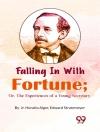In ‘Under Western Eyes, ‘ Joseph Conrad delivers a complex and introspective narrative that probes the murky waters of identity, betrayal, and the clash of cultures at the turn of the 20th century. Set against the politically charged backdrop of Russia and Europe, the novel unfolds through the perspective of an Englishman, offering a rich tapestry of psychological insight and moral ambiguity. Conrad’s hallmark prose, infused with existential themes, resonates with the literary movement of modernism, while its exploration of revolutionary ideals reflects the sociopolitical turbulence of the era, inviting readers to ponder the inherent contradictions of the human condition. Joseph Conrad, a Polish-born writer who later became a British citizen, infuses his personal experiences as an outsider into his works, often grappling with themes of colonialism, identity, and cultural dissonance. His seafaring background and encounters with diverse cultures profoundly informed his literary voice, especially in ‘Under Western Eyes.’ Here, Conrad’s own feelings of alienation and dislocation deeply inform the narrative, paralleling the tumult of early 20th-century ideological struggles. Recommended for scholars of modern literature and enthusiasts of psychological fiction, this unabridged deluxe edition of ‘Under Western Eyes’ is a compelling read that demands contemplation. Conrad’s nuanced exploration of human motivations and ethical dilemmas offers timeless relevance, making this book an essential addition to any literary canon.
Over de auteur
Joseph Conrad, born Józef Teodor Konrad Korzeniowski on December 3, 1857, in Berdychiv, Ukraine, then part of the Russian Empire, was a literary figure of immense stature known for his masterful storytelling and complex psychological insights. Conrad’s early life was marked by tragedy, with the loss of both parents by the time he was eleven, which subsequently led to his uncle’s guardianship. Driven by an irresistible passion for the sea, Conrad pursued a career in the merchant navy, which profoundly influenced his writing. His experiences navigating through various colonial territories during the age of imperialism imbued his narrative with a sense of realism and skepticism about European colonial ideals.
Conrad became a master of English prose, despite it being his third language after Polish and French. His writing style often embraced a narrative nonlinearity and a probing of the human condition, exploring themes such as the clash between civilization and barbarism, and the fragility of human nature. ‘Under Western Eyes’ (Unabridged Deluxe Edition) is among his important later works, depicting the psychological turmoil of a Russian student caught in the web of revolutionary politics—a reflection of his keen interest in the individual in the face of insurmountable societal forces. Conrad’s other significant works include ‘Heart of Darkness’, ‘Lord Jim’, and ‘Nostromo’. His influence extends to literary giants such as F. Scott Fitzgerald and T.S. Eliot. Conrad continued his writing career until his death on August 3, 1924, in Bishopsbourne, England, leaving behind a legacy that endures in the canon of English literature.












